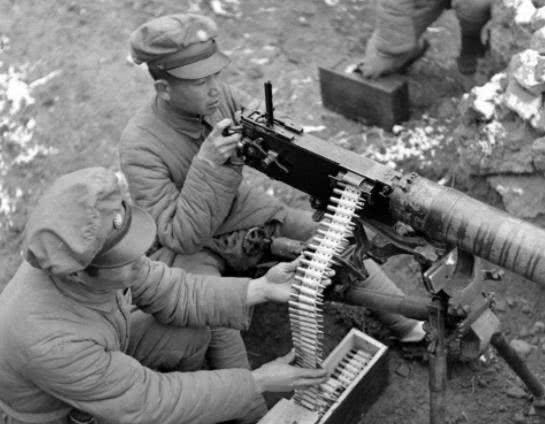Among the Kuomintang troops, there has always been the saying that the miscellaneous cards and the miscellaneous cards are poorly equipped and the treatment is poor, and the weapons of the miscellaneous armies are advanced weapons of the American style, and the treatment is good, so that the military of the concubines naturally looks down on the miscellaneous armies, and the major generals of the miscellaneous cards dare to fiddle with the lieutenant generals of the miscellaneous armies.

Among the generals of the Nationalist Army, Wang Jiashan was lonely and nameless, but his fate was very good, better than Du Yuming, Wang Yaowu and others, because he was a hero of the uprising, received preferential treatment in New China, and enjoyed his old age in peace!
Wang Jiashan, a native of Bayan, Heilongjiang, was admitted to the Tokyo Railway Training Institute in 1922, and later entered the Japanese Army Non-Commissioned Officer School until he graduated and returned to China in 1930.
Although Wang Jiashan was greatly influenced by Japan, he was anti-Japanese in his early years, and after he returned from studying in Japan, he first served as a battalion commander under Yu Zhishan, an envoy to the town of Dongbiandao in the Northeast Army, and later this Yu Zhishan wanted to surrender to the Japanese, and Wang Jiashan left Yu Zhishan's army in anger.
After that, he went to Bayan County to become the head of the Self-Defense Regiment, and in May 1932, Wang Jiashan led 60 fighters to form the Bayan Guerrilla Group, which was the first anti-Japanese team in Kwantung under the direct leadership of the Manchurian Provincial Committee of the Communist Party of China, in other words, Wang Jiashan was a fighter under the leadership of our Party.
At that time, the fighting conditions were harsh, and it just so happened that Wang Jiashan's former classmate Zhang Wenzhu in Japan sent a letter, in which Zhang Wenzhu had surrendered to the Japanese and served as the commander of the Qiqihar Garrison Command, and wanted to ask Wang Jiashan to become chief of staff, so Wang Jiashan left the revolutionary ranks.
In 1942, Wang Jiashan was transferred to the 7th Military District of Jiamusi as the chief of staff of the major general, and later the Japanese army surrendered, wang Jiashan took the opportunity to kill the Japanese commander to cooperate with the actions of the Soviet Red Army, but the Soviet Red Army locked them up after taking over Jiamusi.
Later, Wang Jiashan found an opportunity to run out, after leaving Jiamusi Wang Jiashan first lived in seclusion in Changchun, and then went to Beiping to take Du Yuming's back door, Du Yuming handed over the miscellaneous army that had been composed of puppet Manchu military police, local armed forces and a small number of bandits to Wang Jiashan's command, and appointed him as the commander of the 4th Security Column.
In 1946, Wang Jiashan's security column was reorganized into the Independent 9th Division, just a change of name, equipment and personnel did not change, and what made Wang Jiashan even more angry was that the Independent 9th Division was transferred to the Haicheng area to garrison and assigned to the jurisdiction of the New 6th Army, commanded by Commander Xu Ying.
At that time, Wang Jiashan's military rank was lieutenant general, and this Xu Ying's rank was only major general, and if there was a major general commanding the principle of lieutenant general, this was obviously an improper person for the miscellaneous army, and the treatment of the two units was obviously huge, and many subordinate commanders under Wang Jiashan were also dissatisfied.
In June 1947, the New 6th Army was transferred out of Yingkou, Du Yuming transferred Wang Jiashan's department to guard Yingkou, at that time, Yingkou had become an isolated stronghold, sooner or later it was to be eaten by the Northeast Democratic Coalition Army, Wang Jiashan naturally did not want to be used as a substitute ghost, he had his own plan.
In 1948, Wang Jiashan led his troops to revolt in Yingkou, and after the uprising, the unit was incorporated into the 4th Field Army of the People's Liberation Army, Wang Jiashan successively served as the commander of the Liaodong Military Region, the division commander of Siye, and also served as the division commander of the Volunteer Army, the highest serving as the deputy commander of the Rehe Military Region, Wang Jiashan died of illness on January 23, 1979, at the age of 75.